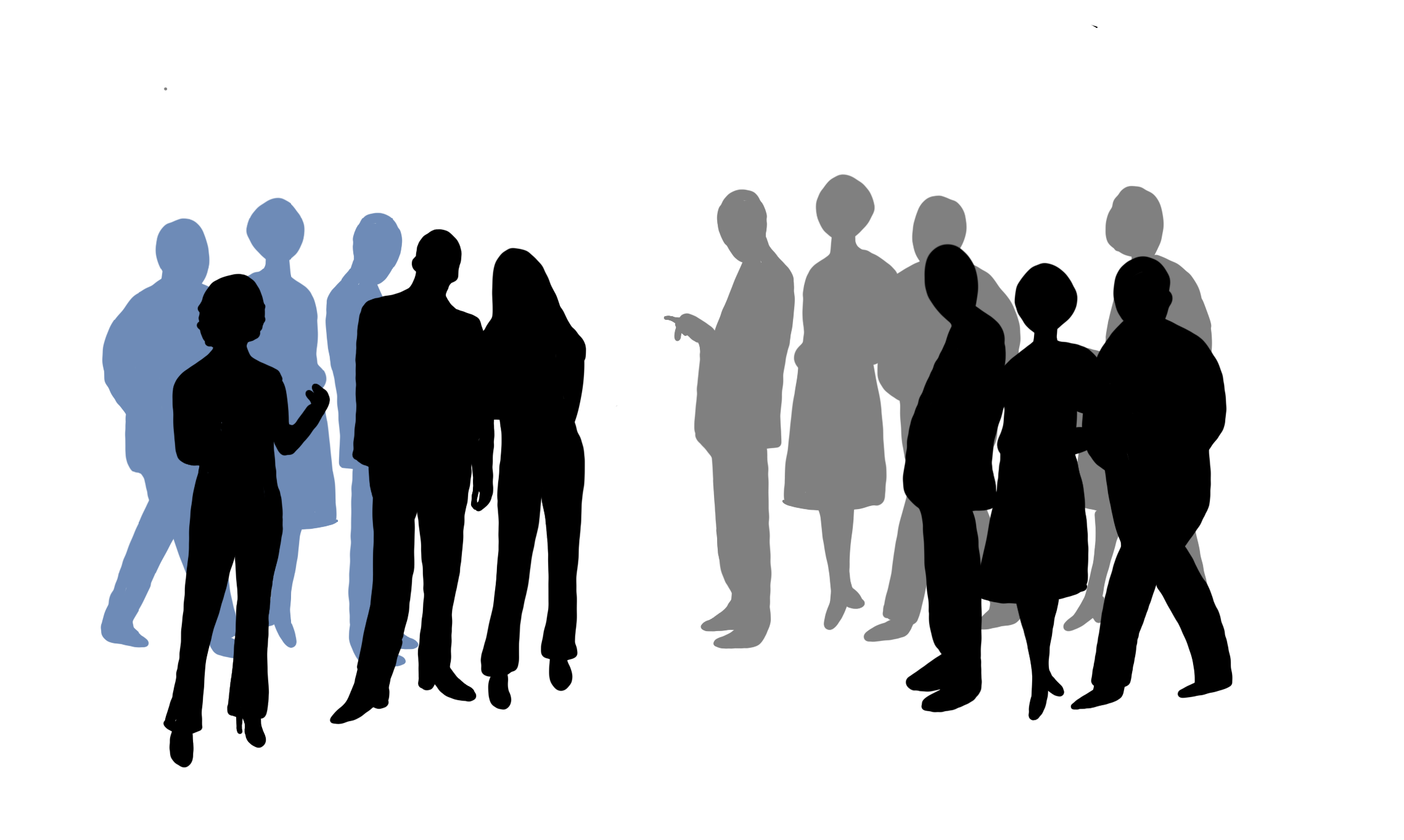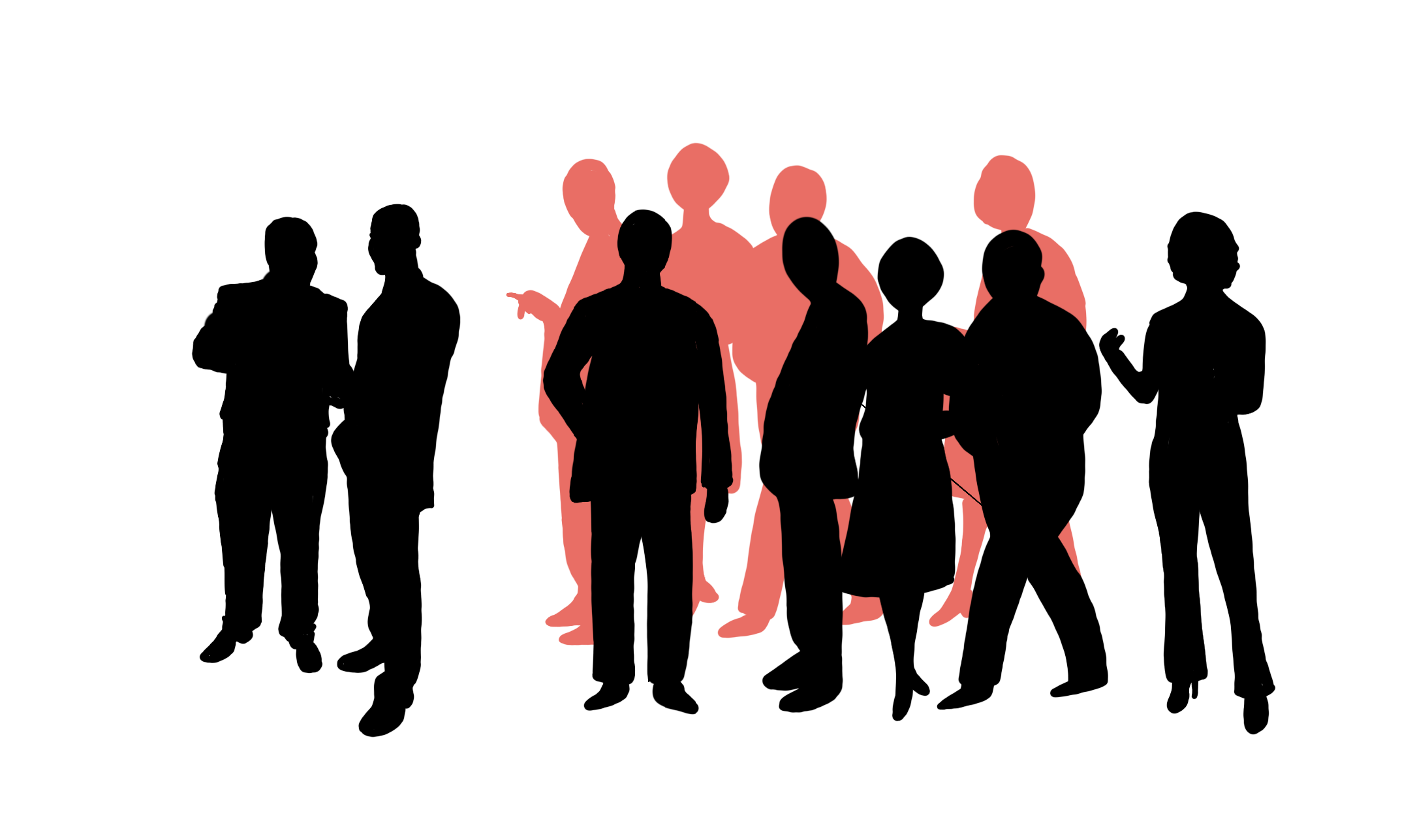By Emily Woodruff, Featured Writer
Artwork by Lea Despotis, Design Lead 
However [political parties] may now and then answer popular ends, they are likely in the course of time and things, to become potent engines, by which cunning, ambitious, and unprincipled men will be enabled to subvert the power of the people and to usurp for themselves the reins of government, destroying afterwards the very engines which have lifted them to unjust dominion,” said George Washington in 1796.
Political parties have been a part of American politics since the inception of the union, and they continue to be a defining feature of not only politics, but for some a personal identity. According to a Gallup poll from January of 2022 24% of people identify as Republicans, 46% identify as Independents, and 28% identify as Democrat. Why? How did people develop their political affiliation, Republican, Democrat, or Independent? Why do political parties define so much more than who you vote for? Why do people exhibit such strong loyalty to their political party?
Tribalism.
Google it and you will see all sorts of New York Times and Atlantic articles talking about how democracy is dying. But what is this thing that is supposedly killing America?
Tribalism, as defined by the Merriam-Webster Dictionary, is tribal consciousness and loyalty or strong in-group loyalty.
But is tribalism good or bad? In the 1300s, Arab historian Ibn Khaldun wrote Muqaddimah in which he outlined that, “tribal societies are defined by their social cohesion and a sense of group interconnectedness”. This loyalty “brings groups together in ways that are crucial for the creation of public goods” and can be used to “build strong empires, forge strong armies, and develop effective governance structures”. He believed that leaders who could not create tribalism would ultimately fail. Khaldun’s analysis can carry merit. Unquestionable loyalty can have its benefits for a leader and can inspire people into action. ABC News has described how in Ukraine loyalty and nationalism for their country have spurred ordinary people into action to stop the Russian invasion. But with the wrong leader, tribalism can lead people to do horrible things in the name of their country, like the Nazis in Germany. What is the balance? Is tribalism a weapon that can be used for good or bad? Is it even possible to stop tribalism?
The very basis of the word tribalism is the reference to the historical nature of tribes. Groups of people loyal to each other no matter what. Over time our society has evolved, but have we really? Just ask William Golding. Psychologists have researched for years on this question and many, including Clark et al. have concluded that “tribalism is human nature”. There is no way to stop ourselves from unquestioning attaching ourselves to a group and to a label. Of course, there are levels to how far some of us go. Some people completely attach themselves to a group and are willing to accept whatever they say, while others will only follow so far. A variety of psychological factors like background, education, etc., impact how much tribalism affects us.
And how is tribalism different from patriotism? Patriotism, as defined by the Merriam-Webster dictionary is “love for or devotion to one’s country”. For thousands of years all over the globe people have died for patriotism. How is dying for your country different from dying for your tribe? And what about religion? People define themselves by their religion, and show dying devotion to their beliefs. Doesn’t that mean religion is really based in tribalism? Religions are full of people who are extremely loyal and would die for their religious tribe. Not everyone is like that, and not everyone needs to be like that for tribalism to exist. If a group utilizes strong-in group loyalty to spread their message or mission, then they are using tribalism.
How is tribalism different from nationalism? Nationalism, as defined by the Merriam-Webster Dictionary is “placing primary emphasis on promotion of its culture and interests as opposed to those of other nations of supranational groups”. Nationalism involves action, while patriotism and tribalism are based in belief. So is tribalism really destroying America, or is nationalism destroying America?
George Washington warned against political parties, but he never had the power to stop them. It is human nature to organize into groups, be strongly loyal to that group, and define yourself by that group. One group is political parties. Democrat, Republican, or Independent. Another could be religions. All of these groups have some members that show intense loyalty. All of these groups have used tribalism to expand their causes, for better or for worse. None of them created tribalism, it is human nature. And if tribalism is really part of human nature, who is destroying America? People.
